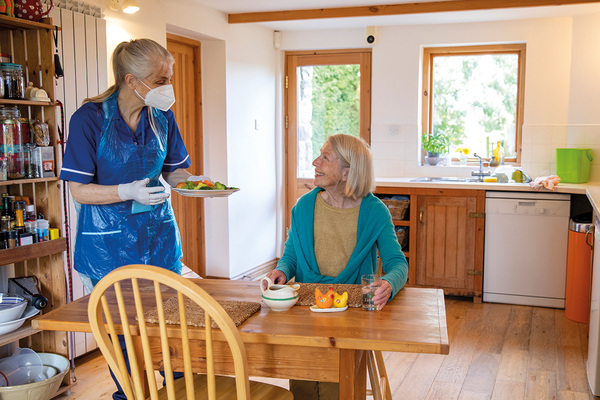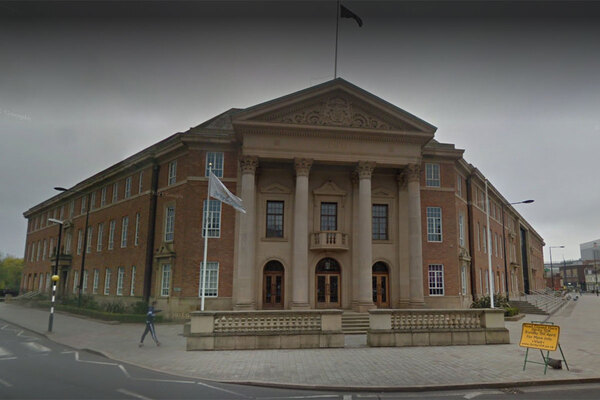You are viewing 1 of your 1 free articles
The Twilight Zone of accessible housing provision
There is a national shortage of accessible housing – and yet social landlords are often allocating accessible housing to people who don’t need it. Martin Hilditch finds out about a new attempt to set up a national accessible housing register
When Millie Hawes landed a job with a law firm in London after leaving Durham University, it was the start of a lengthy quest to find a home.
Ms Hawes, who is a wheelchair user, says she “assumed naively that moving to London would be easy – there’d be loads of accessible housing”.
The reality turned out to be “a huge slap in the face”. A shortage of accessible housing – “there are very few out there” – was compounded by inaccurate advertising. There were a number of “accessible” properties with steps up to the entrance, or where “I couldn’t get through all the doorways”, Ms Hawes states. Then there were the bathrooms that are “just like little alleyways”.
“Maybe some homes [advertised] might be accessible for a manual wheelchair user, but I use a powered wheelchair,” she states. “That’s a whole different dynamic. It’s a very different size, different turning circle, just completely different.”
It ultimately took Ms Hawes nine months to find a suitable home, chunks of which involved marathon two-hour work commutes from her parents’ home in Cheshire. But this has long been the norm for disabled people. Last year, housing association Habinteg’s research estimated that more than 400,000 wheelchair users in England are living in homes that are neither adapted nor accessible. A 2018 Equalities and Human Rights Commission (EHRC) report found that “disabled people report a severe shortage of accessible houses across all tenures”, with social housing “particularly pressured, with long waiting lists”.
This is the point at which we enter the Twilight Zone of accessible housing provision. That same EHRC report also found that providers “find it difficult to identify individuals on waiting lists whose accessibility requirements match those of available properties, and as a result what limited accessible housing they have is often given to people who don’t need adapted housing”. In other words, disabled people are struggling to track down accessible housing while social landlords are struggling to find (or allocate to) disabled people.
It is an odd mismatch, at least in part explained by the perennial social housing problem of poor data.
So, what should be done? There have been attempts to address the problem in the past. But that EHRC report found that just 22% of councils in Great Britain had registers of accessible housing (which it defines as “a list of accessible properties, and/or a list of residents requiring accessible housing”). Wales is leading the way, with 52% of authorities using this approach.
Enter Habinteg, a 3,300-home accessible housing specialist. Nic Bungay, its director of strategy and external affairs, says it has decided to “step into the space because we could see that there was a need to bridge the gap”. Ms Hawes is one of the individuals on a steering group set up by Habinteg to look at creating a new national accessible housing register. The tech is, of course, crucial. The group is working with non-profit national mobility scheme Homefinder UK, which advertises social homes on its website.
The aim is to prove the idea works, and could be rolled out more widely. For this reason, the initial focus is on creating a register for wheelchair-accessible homes rather than other accessibility features, and on social housing, instead of the private rented sector (although this is an ambition). The group is aiming to work with around 10 associations over the next year, which would commit to sharing information about their wheelchair-accessible homes with Homefinder UK.
“What I’m keen to do over the next year is make sure that [housing association staff] are collecting information about accessibility and they can do that in a quick and easy way,” Mr Bungay adds. “And that they are trained and understand why that information is being collected and that is then appearing on the website.”
In numbers
400,000
Wheelchair users in England living in homes that are neither adapted nor accessible
22%
Councils in Great Britain with registers of accessible housing
52%
Councils in Wales with registers of accessible housing
Jacquel Runnalls, a specialist housing occupational therapist who is also on the project steering group, says that along with straightforward wording, there is a need for the register to “provide floorplans, photos of all key aspects and/or virtual and video tours and other key information such as parking, location, proximity to shops and transport”.
Homefinder UK has already created a trial page on its site, advertising wheelchair-accessible properties.
Ninesh Muthiah, chief executive of Home Connections, says his immediate ambition is “in the course of a year to have advertised getting into the hundreds of properties and enabled hundreds of people to obtain wheelchair-accessible properties around the country. That is a relatively small number in the scheme of things but it is a step forward and it is better to have that realistic objective” to start with.
For now, everyone involved in the pilot wants social landlords to sign up.
“If we can translate it into genuine impact we will start to see that fewer disabled people are living in inappropriate accommodation,” Ms Hawes adds. “That would be a huge success story.”
She hopes many social landlords will want to volunteer. “We are trying to get buy-in from housing organisations that they realise they have a role to play,” she states. “Disabled people are so used to making do because society has told us for years to make do with what you can get. That is not good enough any more.”
Sign up for our care and support bulletin
Already have an account? Click here to manage your newsletters










